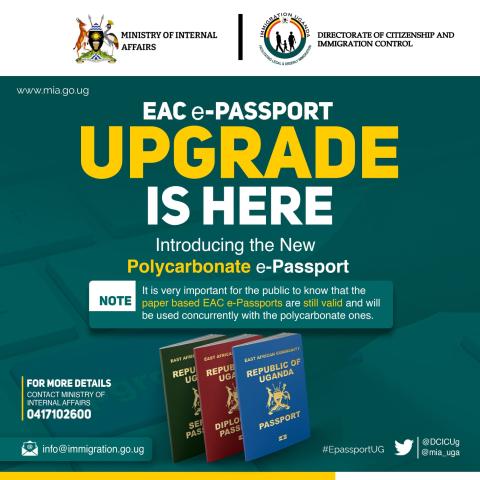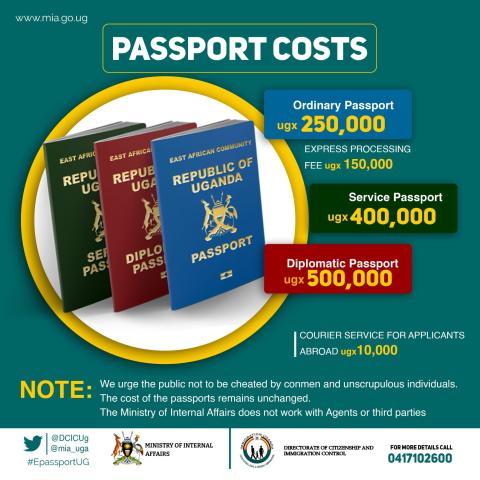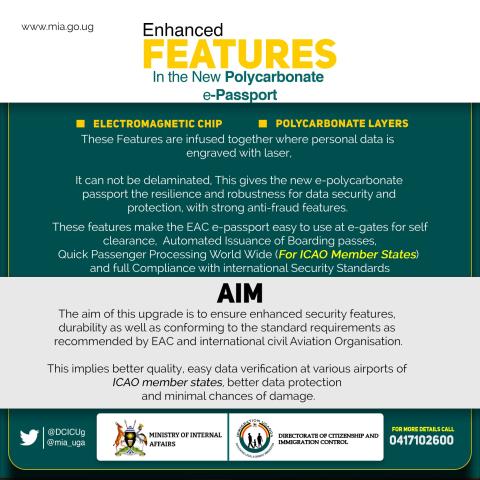Upgrade of EAC E-Passports
The Ministry of Internal Affairs has completed an upgrade of the current Paper-based e-passports to Polycarbonate e-passports. The aim of this upgrade is to ensure enhanced security features, durability as well as conforming to the standard requirements as recommended by EAC and International Civil Aviation Organisation (ICAO). This implies better quality, easy data verification at various airports of ICAO members states, better data protection and minimal chances of damage.
The Ministry has so far issued over 1,008,401 (one million eight thousand four hundred and one) e-passports since the launch December 2018. Both passports (e-paper based and e-polycarbonate) shall continue to be used until expiry or leaflets run out.
The upgraded Polycarbonate passports, just like the e-paper passports have an electromagnetic chip. e-Polycarbonate passports however have polycarbonate (tough plastic) layers infused together, leading to a finished material where personal data is engraved inside the deeper layers of the document with laser. This cannot be delaminated. This gives the new e-polycarbonate passport the resilience and robustness for data security and protection, with strong anti-fraud features.
These features make the EAC e-Passport suitable for use at e-gates for self-clearance; easy and automated issuance of boarding passes; quick passenger processing worldwide (for ICAO member states); and full compliance with international security standards, hence easing traveller experience. Travel, specifically document verification is going to be easier and seamless than ever before, due to improved technology.
The cost of the Passports
The cost of the passports remain unchanged; An ordinary Passport costs Shs250,000, while processing an express Passport attracts a fee of Shs150,000, which makes a total of Shs400,000. Official and Diplomatic passports costs Shs400,000 and Shs500,000 respectively though these are for specific identified categories of Government officials. Ordinary passports take between 7-14 working days to be ready, while express Passports take 3-5 working days. All these lead times are subject to due diligence and other verification procedures. If there are queried cases, these times may change.
Since 2019, we migrated to online application at www.passports.go.ug or www.immigration.go.ug. The system is user friendly, as it prompts you on the steps to follow.
It is very important that the stakeholders understand that Paper based e-passports are not being invalidated.
They are valid until their expiry date or until the leaflets are finished. The Polycarbonate e-passports merely present an upgrade akin to upgrading software that does not negate the upgraded software itself. So, holders of the paper-based e-passports should not worry as they are as valid as the polycarbonate ones and they will be used concurrently. There is no need to replace paper-based e-passports. Going forward, new applicants will be issued with polycarbonate e-passports.
We request the public not to be cheated by conmen and unscrupulous individuals, who charge extra and/or claim to offer much quicker services than our standards. We do not work with agents or third parties. The Directorate of Citizenship and Immigration Control (DCIC), reiterates its commitment to serve Ugandans and the public in general.




